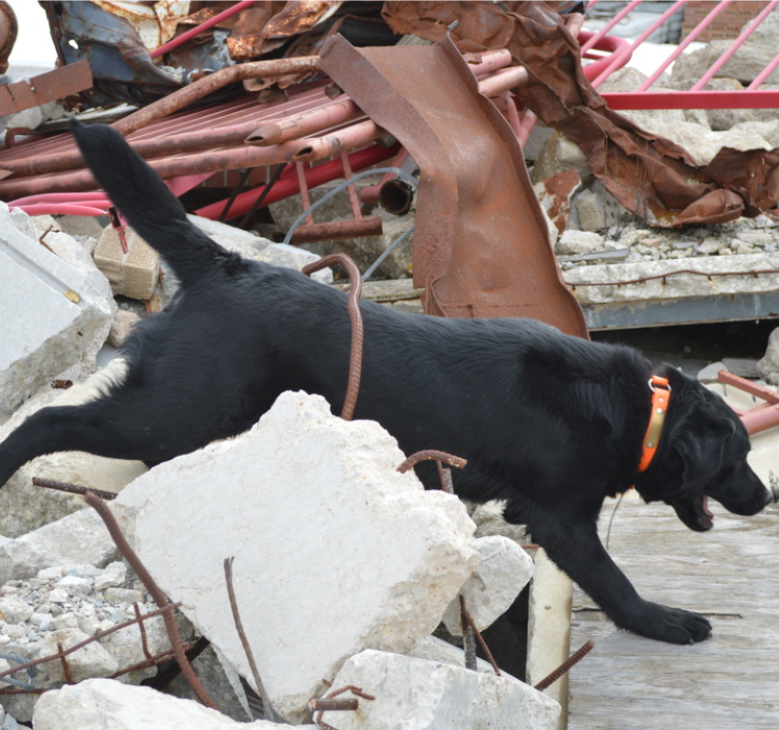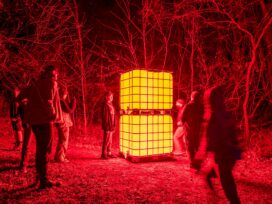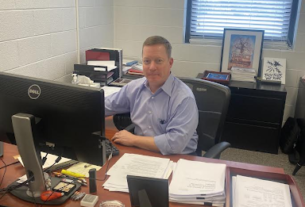
SDONA: Searching with a Purpose
Bryn Dotson, assistant editor
Muddy paws sink into the earth, and damp noses press against the dewy grass. Handlers follow their agile companions loyally, trailing alongside them as they continue their ceaseless hunt. Whether it be in the dark hours of a newborn morning or under the hot gaze of the midday sun, the dogs and their handlers are searching.
They are not hunting for a deer, a squirrel, a rabbit. They are looking for a missing person. It takes specialized training to track a human’s scent, training most people do not have access to. That is where Search Dog Organization of North America (SDONA) comes in.
SDONA is a donation-based organization that trains and prepares dogs and their owners to search for missing persons and rescue them. According to SDONA’s website, its mission is straightforward: “To develop and nurture a program grounded in science-based functional training where K9 handlers and their dogs can train, test, and challenge themselves to the highest level possible.”
“It is rewarding when you as a dog handler find someone who has been missing,” said Bill Dotson, who trains with SDONA. Dotson has worked with SDONA, as well as many other teams and organizations, for many years. He has also aided the Federal Emergency Management Agency.
Dotson explained that SDONA teaches different dogs for different tasks. These can include disaster dogs, which are trained to find living humans in the aftermath of a disaster, area search dogs, which are able to find human scent through the wind, and Human Remains Detection (HRD) dogs.
Dotson works specifically with Human Remains Detection dogs, which are trained to hunt down the scent of a missing individual who has passed away and needs to be located.
“We train dogs to find human remains, which may or may not be buried. We can have cases as intense as homicide and suicide,” Dotson said in an even tone.
These dogs spend extensive amounts of time searching for cadavers, which can be placed in a broad range of climates, temperatures, and weather. Even in large bodies of water, Water HRD dogs are able to find a scent and guide rescuers and handlers to a specific area.
According to the National Missing and Unidentified Persons System (NamUs), over 600,000 individuals go missing in the United States every year.
“There are the not-so-good parts. The hardest times are when you see families that have indefinitely lost a loved one. It is a hard place to be and a hard thing to witness,” Dotson explained, his tone dipping slightly.
“But this is why we do it. It is the best feeling when you do a good job. It is an emotional journey through and through,” Dotson said as he smiled.
Because of the experience he has, Dotson has spoken at many seminars on the importance and practice of search and rescue.
“It’s my job and my passion, which can often be a challenging balance to strike. It allows for me to travel, as well as experience different cultures and be immersed. We search with a purpose. It’s what we love to do,” Dotson concluded.
Author’s note: Bill Dotson is Bryn Dotson’s grandfather.







